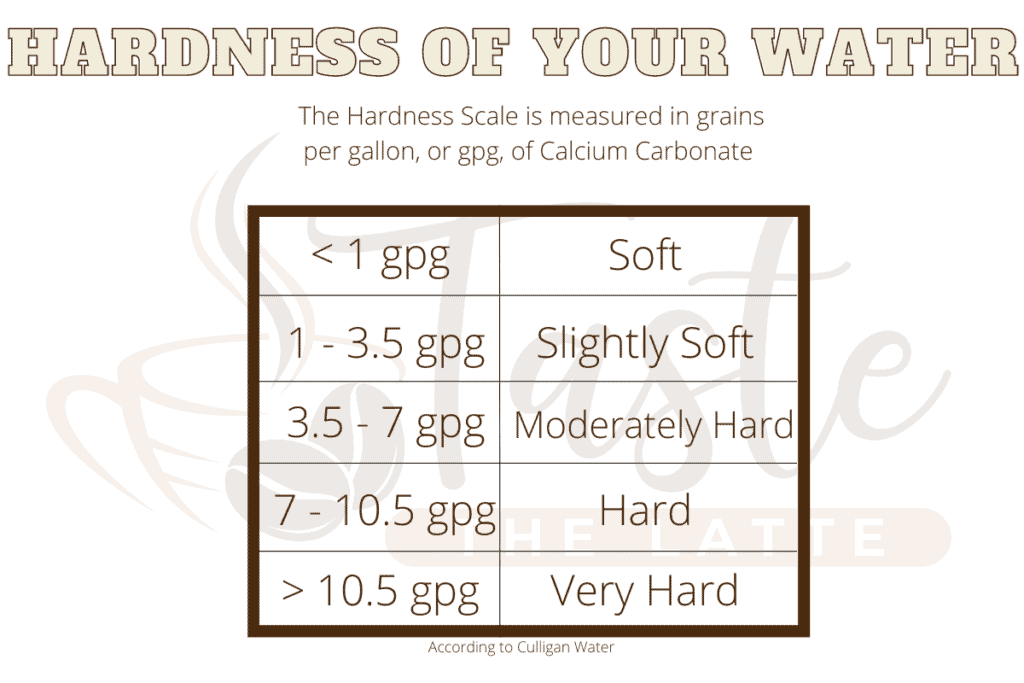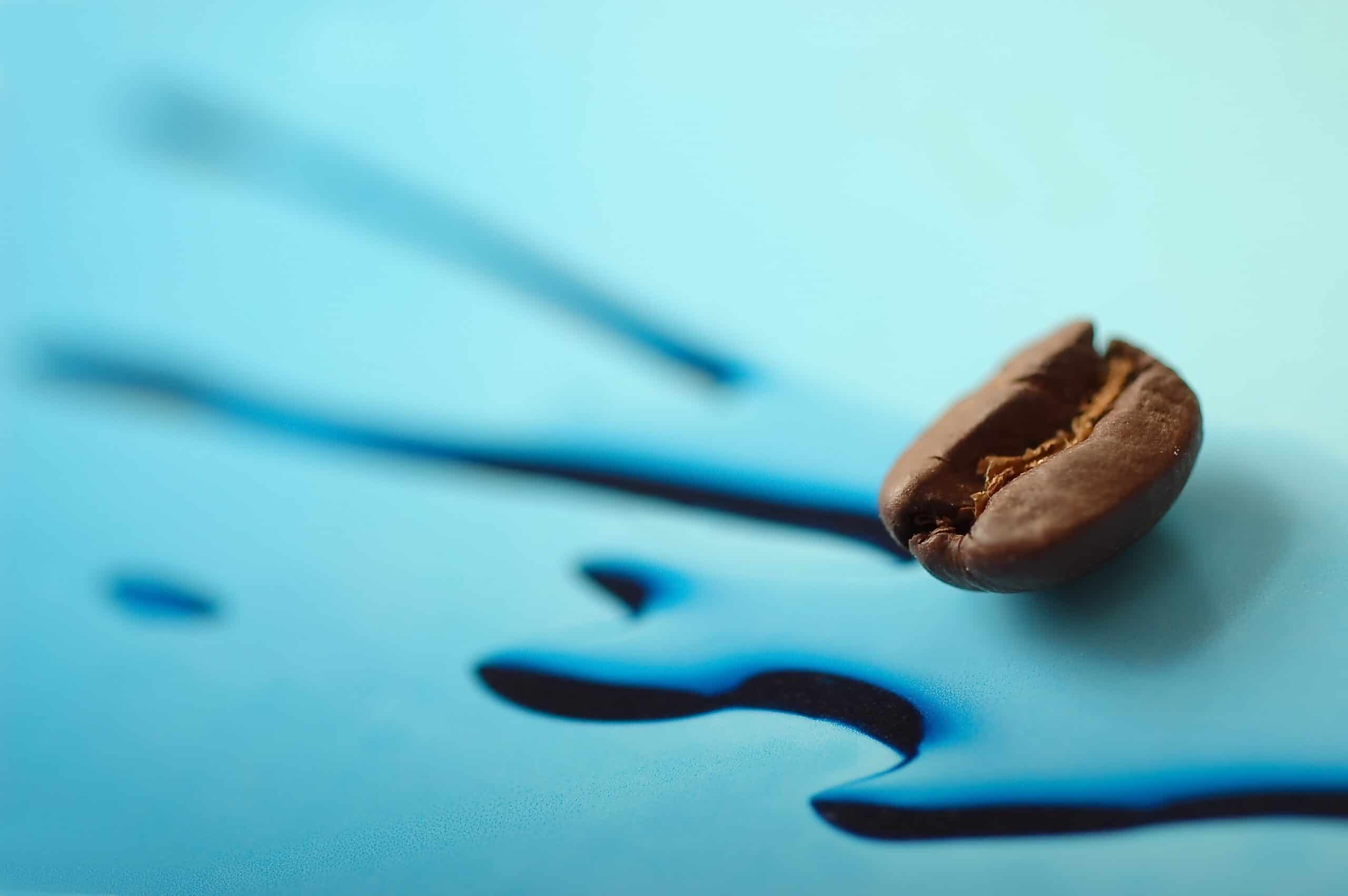You aim to make a delicious cup of coffee full of body and flavor. You’ve researched the best coffee beans to use and the best brewing device, and now you’re considering changing the regular tap water to brew with. Should you use distilled water in your coffee maker?
While many coffee drinkers will say that using distilled water in coffee will produce a more pure-tasting cup of coffee, it will not produce the best brew because it lacks all the good minerals as well. Furthermore, distilled water can cause corrosion issues with various machines.
You may still be a bit confused about why some websites and coffee drinkers suggest using distilled water while we and others recommend against it. No fear, continue reading to get all your questions answered so you too can be on your way to brewing that perfect cup of joe.
What is Distilled Water?
Before we go any further, let’s ensure we all know what distilled water is. Distilled water is different from bottled or filtered water.
Distilled water is made from the steam of boiling water. The moisture is collected, cooled, and returned to its original state. This process removes everything in the water, including minerals, pesticides, heavy metals and other contaminants, leaving pure Hydrogen and Oxygen, H20.
You may be wondering if distilled water is safe to drink. The answer is yes. Because it is pure H20, distilled water is completely safe to drink, although you will probably find it tasting a bit bland. Just as all the harmful minerals and contaminants are removed from the water, all the good minerals are removed as well, including calcium and magnesium. Salt is also removed from the water. These minerals add flavor and nutrients; take them away, and you’re left with flavorless water.
According to the SCAA, Specially Coffee Association of America, the ideal mineral content for the water you use to make coffee should be 150 parts per million.
Not only are you missing out on calcium and magnesium when drinking distilled water, but it’s also lacking essential electrolytes, such as potassium. These nutrients are beneficial to your body. There’s some evidence showing that drinking water lacking these minerals can lead to body weakness, muscle cramps, brittle bones, and tiredness.
It’s important to keep in mind, though, that all these essential minerals can be consumed via a healthy diet. Fruits and vegetables contain many of these nutrients, so water isn’t the only means of consuming them. In fact, in comparison, water has only a small percentage of these trace minerals when compared to other nutritious foods.
Can You Add Minerals to Distilled Water?
There are ways to add minerals to your distilled water, but I’m not sure I would recommend it when brewing coffee. For purely drinking purposes, though, let’s discuss it.
As we mentioned, distilled water or water without any minerals will lack flavor. When you add minerals back into the water, the PH level will rise and add some taste back to it.
So, how do you remineralize distilled drinking water? You can purchase electrolytes or mineral drops to add to the water. Be sure to carefully read the directions to avoid adding too much.
I would not recommend using mineral drops in distilled water when brewing coffee because of machine malfunctions. There are many cases where customers will complain that their brewing device is having issues with overheating, especially if the machine has PID sensors (either inside or outside of the machine). Many of these issues were due to them using distilled water with mineral packets or drops.
I’ve found that this isn’t necessarily a concern when using a drip machine or pour-over. So, if this is what you have at home and you want to use distilled water with the mineral drops added, then it should be fine.
Why is Distilled Water Not Recommended for Many Brewing Devices?
You’re probably familiar with water being called the universal solvent due to its ability to dissolve many things. This is especially true with water containing almost no TDS (total dissolved solids).
As a result, distilled water has been known to leach minerals out of boilers and metal pipes used in some coffee and espresso makers. Over time, this can lead to corrosion of your machine, which is why we highly suggest you not use distilled water when brewing coffee.
On a Keurig packaging, it actually states, “Do not use distilled water.” This is because for a Keurig machine to work correctly, it requires some minerals in the water to heat it properly. Without the added minerals, your machine will start to wear down and stop working overtime.
How to Make Distilled Water at Home?
- Get a large deep pot and fill halfway with water.
- Get a cup and tie it to the lid. Place right side up within the pot with the lid on. The cup should NOT be touching the water.
- Boil water for 25 minutes. This will produce water vapor.
- The water vapor will create droplets on the lids, which will then drip into the cup.
- The water inside the cup is now distilled.
What is the Best Water to Use for Coffee?
According to the Specialty Coffee Association of America or SCAA, the water that goes into coffee should be fresh, clean, and odor-free. A simple water filter should remove most of the harmful minerals and contaminants but still have enough not to damage your coffee machine.
Instead of distilled water, use purified water, reverse osmosis water (ro), or bottled water.
When determining the best water for your coffee, there are three things to consider: hardness, PH, and TDS.
Hardness
Some water contains more calcium ions than others. This water is usually referred to as hard water. Besides calcium, the other minerals that make up hard water include sulfates, chlorides, bicarbonates, and magnesium carbonates. The target calcium hardness level in water is 68 milligrams per liter or 4 grains. Up to 5 grains and 85 milligrams per liter of calcium hardness is acceptable. You can install a system in your home to produce soft water.

PH
Many substances are measured on a pH scale, where they can be more acidic or basic, aka alkaline. The target goal for water is to have a pH of 7.0, which is a neutral pH. That said, if the water is slightly more acidic at 6.5 or a little basic at 7.5, that’s okay too.
Total Dissolved Solid (TDS)
Total dissolved solids refer to the salts, organic materials, metals, and minerals that dissolve in water. The lower the TDS measurement, the purer the water is, and thus the higher its quality. The SCAA has a target goal for water used for coffee to contain only 150 milligrams per liter of TDS. Up to 250 milligrams per liter is okay. Distilled water has 99.9% of all TDS removed.
For more factors you should consider when choosing what type of water you should use in your coffeemaker, click here!
Mineral Build-up and your Brewing Device
Although distilled water should not be used in your coffee machines, it is important to use filtered water as discussed earlier. Not only will this make your coffee taste better, but it is will help with mineral build-up in the machine.
Beneficial minerals assist in the extraction process, but limescale build-up will have negative effects. Regular cleanings of the device including the water reservoir and the use of a descaling solution will solve the problem.
Related Reading: How often should you clean your coffee maker?
Final Thoughts
We suggest using filtered water when brewing coffee over distilled water to avoid damaging your equipment. No one wants to continue replacing their coffee machine until it is absolutely necessary.
